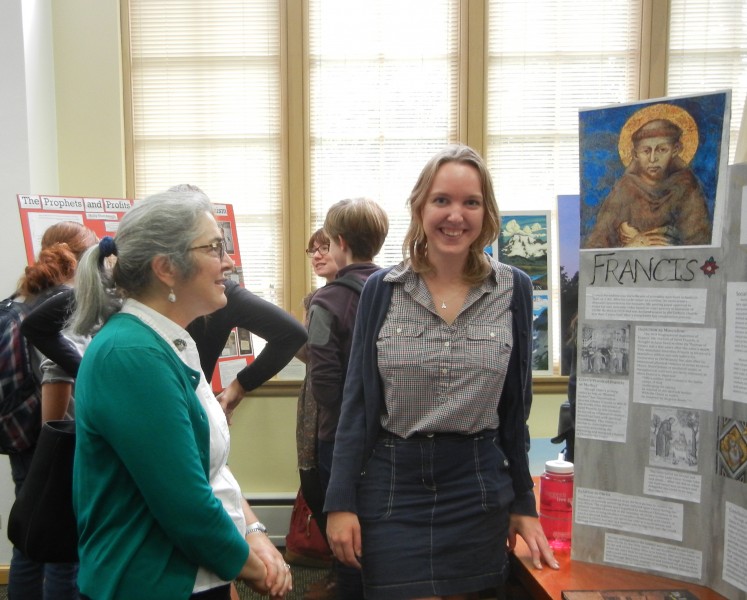Joe Kaplan '16, a History major with minors in African American Studies and Latin American Studies, received a summer research award the summer after his junior year.
How did you identify a research topic? What about this topic particularly intrigued you?
The inspiration for my summer research came to me on my trip to Cuba as part of Don Share and John Lear’s Latin American Travel Seminar. During the trip, I read Assata: An Autobiography,written by and about former Black Panther Assata Shakur, who is now living in Cuba with political asylum. As I read Shakur’s words from her place of refuge, a powerful and surreal experience, I reflected on the disconnect between Shakur’s story and the class I had just taken on the history of U.S.-Cuban relations. Although I was in the same city as Shakur, I felt worlds away, and I decided that my research should help explain and bridge this intellectual gap. I determined that the privileging of the state as the primary actor in the history of U.S.-Cuban relations had obscured stories like Shakur’s that challenged monolithic understandings of both American and Cuban identity. The conceptual lens of Borderlands History allowed me to articulate Shakur’s story within a transnational framework where racial ideology, nationalism, and identity were not natural or neutral categories, but rather shifting and incomplete social processes subject to contestation and re-imagination.
What did you find most challenging about carrying out a summer research project? What was most rewarding?
The most challenging aspect of this project was figuring out exactly what I wanted to argue. I was fortunate to have Professor Grace Livingston as a faculty advisor, and her mantra about finding the “purchase” of my arguments kept me focused on my goal of probing the salience of the nation-state for African populations in the Americas. One of the most rewarding parts of the research was the way it connected colonial/slave history, modern history, and contemporary social movements. I incorporated discussions of power in the production of history to make a point about slave rebellion and American memory, and brought this to bear on Shakur’s 20th century story of confinement and flight. Additionally, I was able to bring Shakur’s story into the present and connect it to my own interests by discussing her legacy on contemporary social movements and the hip-hop community.
How did the summer research experience build upon previous coursework you’ve done, in terms of content and skills, and help prepare you to take on thesis work?
Doing summer research was absolutely critical to my ability to produce a well-conceived and thoroughly researched thesis for History 400. Rather than coming into the class with a vague notion of what I might like to investigate, I came in with substantial research material and numerous possibilities for taking my work in new directions. Ultimately, I expanded on a particular aspect of my summer research and was able to mine that material to create a project with a good deal of depth and sophisticated analysis. My final paper was entitled “The Exile of Assata Shakur: Marronage in American Borderlands,” and treats Shakur’s story in the trans-historical context of flight from racialized confinement, or marronage.
Hannah Ellingson '16, a double major in History and Religion, received a summer research award the summer after his junior year.
How did you identify a research topic? What about this topic particularly intrigued you?
I started with a very general subject, medieval women mystics, which had been a section of my Christian mysticism class that especially interested me. With this broad topic in mind, I discussed my ideas and goals with my advisor and looked through some subject encyclopedias sources to narrow my focus to the specific historical figures, Francis and Clare of Assisi, who best fit my interests.
What did you find most challenging about carrying out a summer research project? What was most rewarding?
With such a large project, it can be difficult to stop researching and start actually writing a paper, because it feels like there is always more to learn. But making a timeline with mini-deadlines for various aspects of the research process was a really helpful way to keep myself on-track and stay in touch with my advisor over the summer. And in the end, it was very rewarding not only to have produced a 20+ page research paper, but also to have had the experience of working closely with an advisor and utilizing the resources available through the library.
How did the summer research experience build upon previous coursework you’ve done, in terms of content and skills, and help prepare you to take on thesis work?
Summer research uses many of the skills students learn in history classes, but it's a different and amazing experience to be able to research a subject of special interest without the daily stress of classes that can be so inhibiting throughout the school year. It was also fantastic to start my senior year having completed much of the research and writing for my Honors thesis, because that has made my life a lot easier this year.


